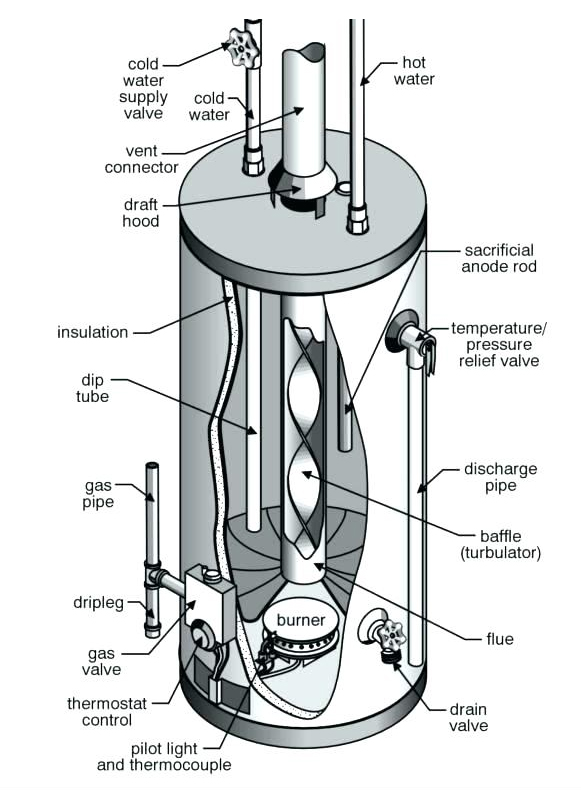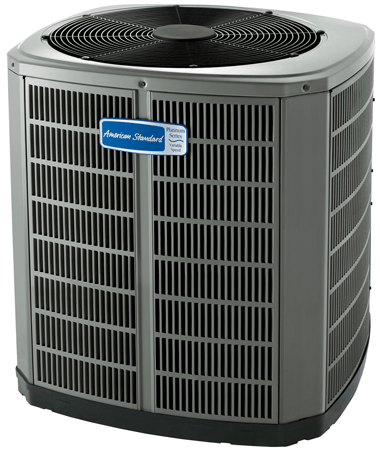Hot water heater issues don’t always need a professional, they can often be fixed by the homeowner if you follow the right procedures.
It’s quite easy to know when you have a water heater problem. Some are more serious than others and often you can solve them yourself. You may not have hot water at all. The shower’s temperature could be affected when you flush the toilet. You could run out of hot water halfway though your shower. The water may never get hot enough. The water may be discoloured or have an odd smell. There could be water puddles formed around your water heater. Many hot water heater issues can be fixed without the help of an HVAC technician if you read up on the procedures to follow. We’re here to help solve your hot water heater issues by supplying all of the information you need to fix them yourself.
 No hot water
No hot water
The most common of all hot water heater issues is not getting any hot water. The first thing you should do is check that the water heater is turned on. If you have a power vent water heater, check to see if the water heater is plugged into the power outlet and that the power outlet is properly working. Next, make sure that the water heater thermostat is set to the medium range between 115-120 °F. It is dangerous for the temperature to be any lower than that as it would allow for harmful bacteria to be transmitted through the water.
Not enough hot water
Not getting enough hot water in your home could be due to an undersized water heater. When upgrading your bathroom appliances to something bigger and better, a larger water heater is often also necessary. Tankless water heaters are a great replacement for your undersized water heater as they provide an endless supply of hot water for your home. This type of water heater heats water on-demand meaning that the water will stay hot as long as you’re using it.
If you’re experiencing not getting enough hot water in the colder months of the year this could be due to the temperature outdoors. Try adjusting the water heater’s dial to a higher temperature and see if you get different results.
Water is too hot
On the other side of the spectrum, the water coming from your water heater may be too hot. In this case, set the temperature dial on the water heater to a lower temperature. Give the equipment some time and see if this has solved the issue. If the water is too hot this often means that the water heater is not turning off at the set temperature.
Empty out the water heater
The water heater may cause problems and become inefficient due to an excess of mineral deposits in the tank. To get rid of them, connect a hose to the drain valve and empty out the tank.
Water puddles near the water heater
If you’re seeing puddles on the floor near the water heater this could mean that the drain valve isn’t closed tightly or that there is a leak in the water lines.
This could also be a sign of a problem related to the water temperature and pressure. If the puddles of water are underneath the tank then this could mean that there is a hole in the tank as a result of rusting. Contact a local HVAC technician if you cannot find the source of the leak and they should be able to help with the problem.
Damaged plastic dip tube
The plastic dip tube is a component of your water heater which directs cold water to the bottom of the tank where it is heated. If this piece is damaged in any way then the cold water could mix in with the hot water and result in cold water coming out of your faucet.
A broken dip tube must be replaced by a professional HVAC technician. The water heater could also be too old to be operating efficiency as it develops other problems due to aging. The water heater may need to be replaced with a new and efficient model.
Faulty temperature-pressure relief valve
The temperature-pressure relief valve regulates the pressure in the tank and keeps it at an optimal level. The temperature-pressure relief valve may be source of your water heater problems if it is broken. To test if it’s working, lift or lower the handle on the valve and see if water comes out. If water does not drain from the overflow pipe then the temperature-pressure relief valve needs to be replaced.
Discoloured water
If the water coming out of your faucet has a brownish or orange rusty colour then this means you have a damaged anode rod. Once the anode rod inside of your water heater becomes faulty, you will see rust in the water. You must replace the anode rod in order to get rid of the discoloration in the water.
Popping noises in the water heater
If you’re hearing odd popping noises coming from your water heater it is likely because of a sediment buildup. This is one of the hot water heater issues which needs the help of a professional HVAC technician. A sediment buildup problem must be solved by an HVAC technician as they will be able to flush out the sediment from the system.
Bad smelling water
One of the most unpleasant hot water heater issues is experiencing a rotten odour in your home’s water supply. This problem is just as troubling as it is unpleasant. An odour in the water means that there is a bacterial infection inside of the water heater. A professional HVAC technician should be the one to deal with this problem as it could be more complicated.
DeMark Home Ontario is here to help you solve all of your hot water heater issues. Our experienced staff would be glad to be the solution to all of your HVAC problems. We offer a simple, hassle-free rental service for a variety of water heater types, including tankless water heaters. Our experts will provide you with quick and efficient water heater service and replacement performed by our highly experienced and trained technicians. Call us at 647-847-2998 or fill out our online request form and we will be happy to assist you with your request.
The post Hot Water Heater Issues appeared first on DeMark Home Ontario Furnaces, A/C, Water Heaters.

No comments:
Post a Comment